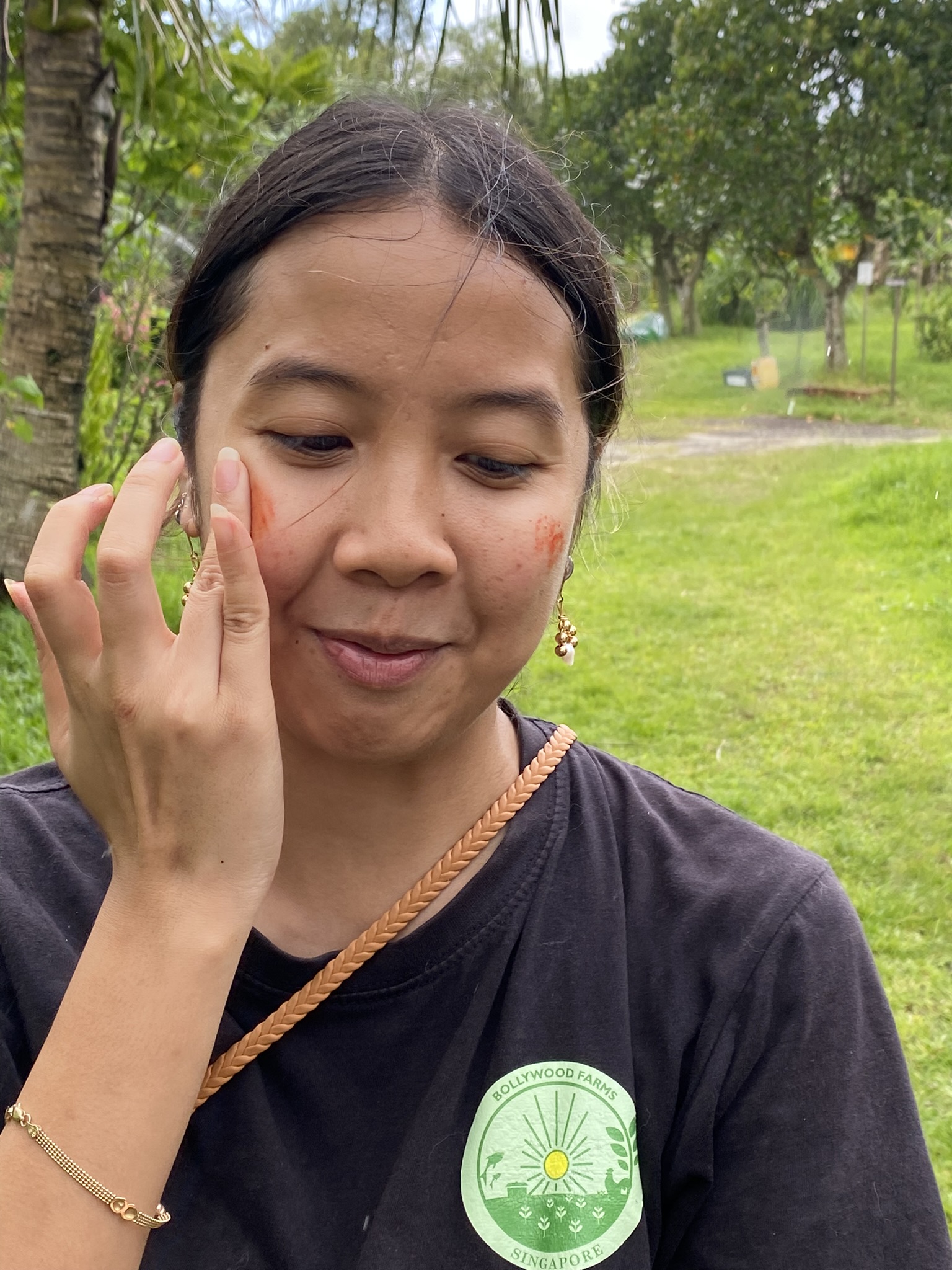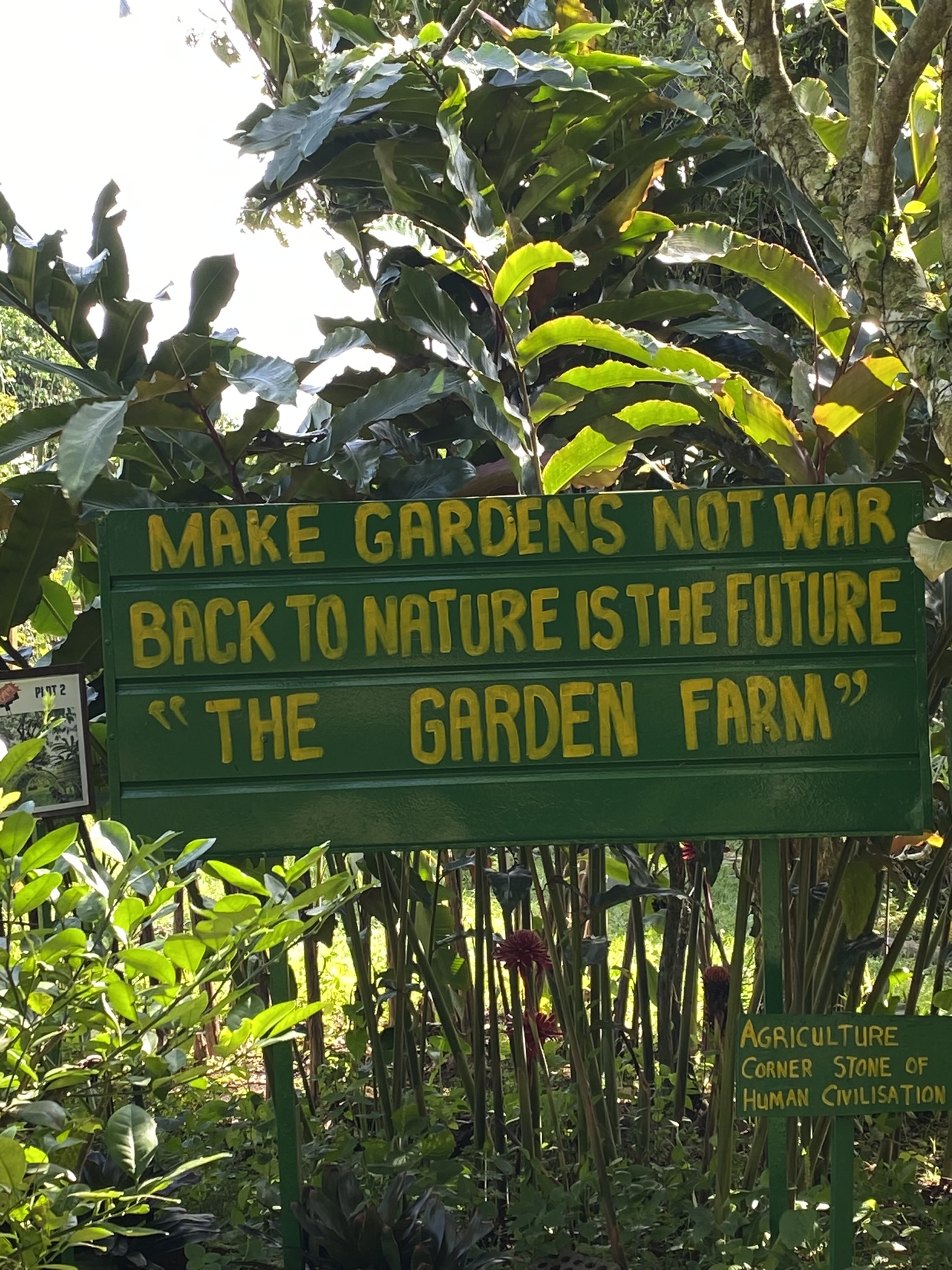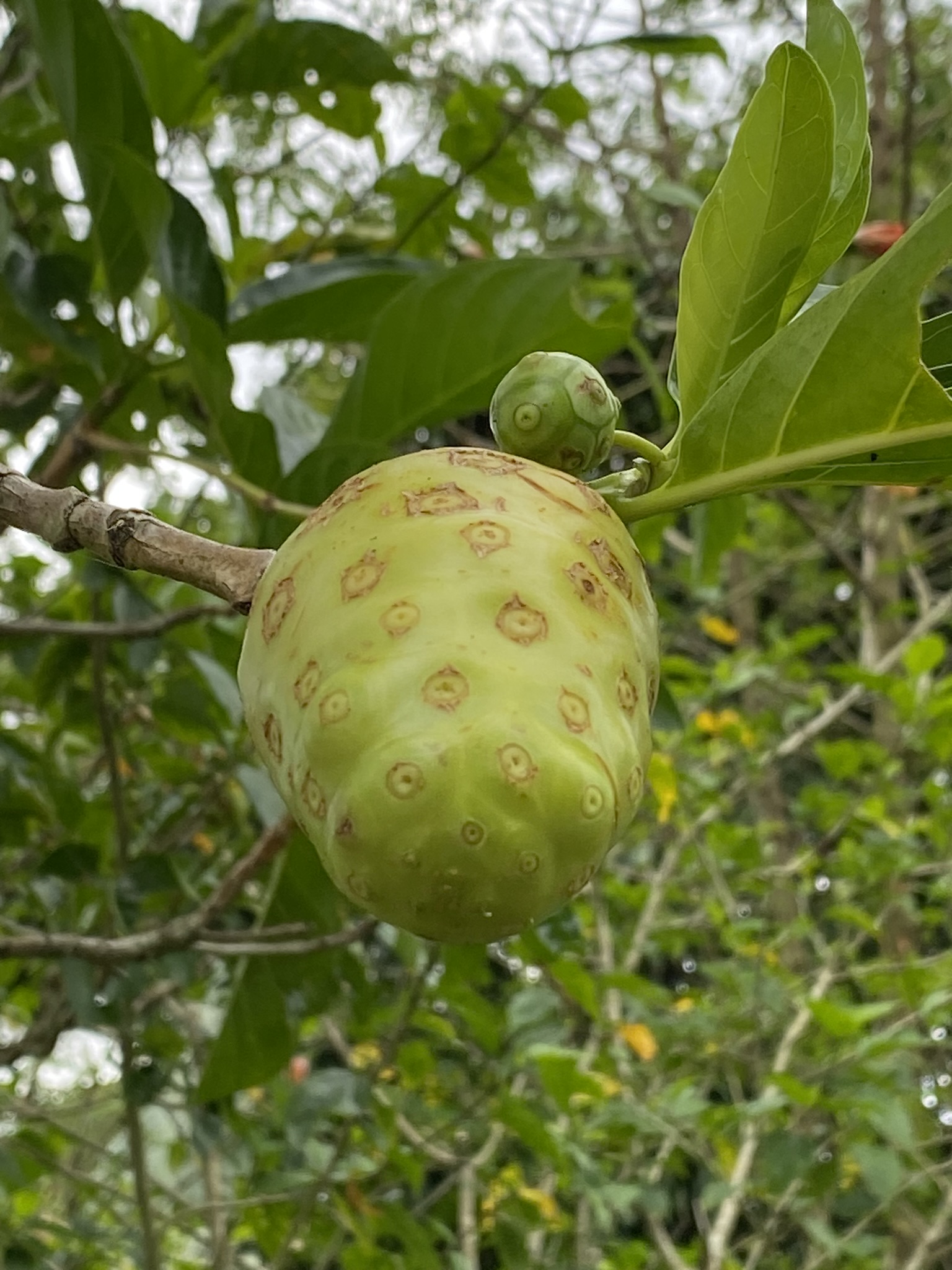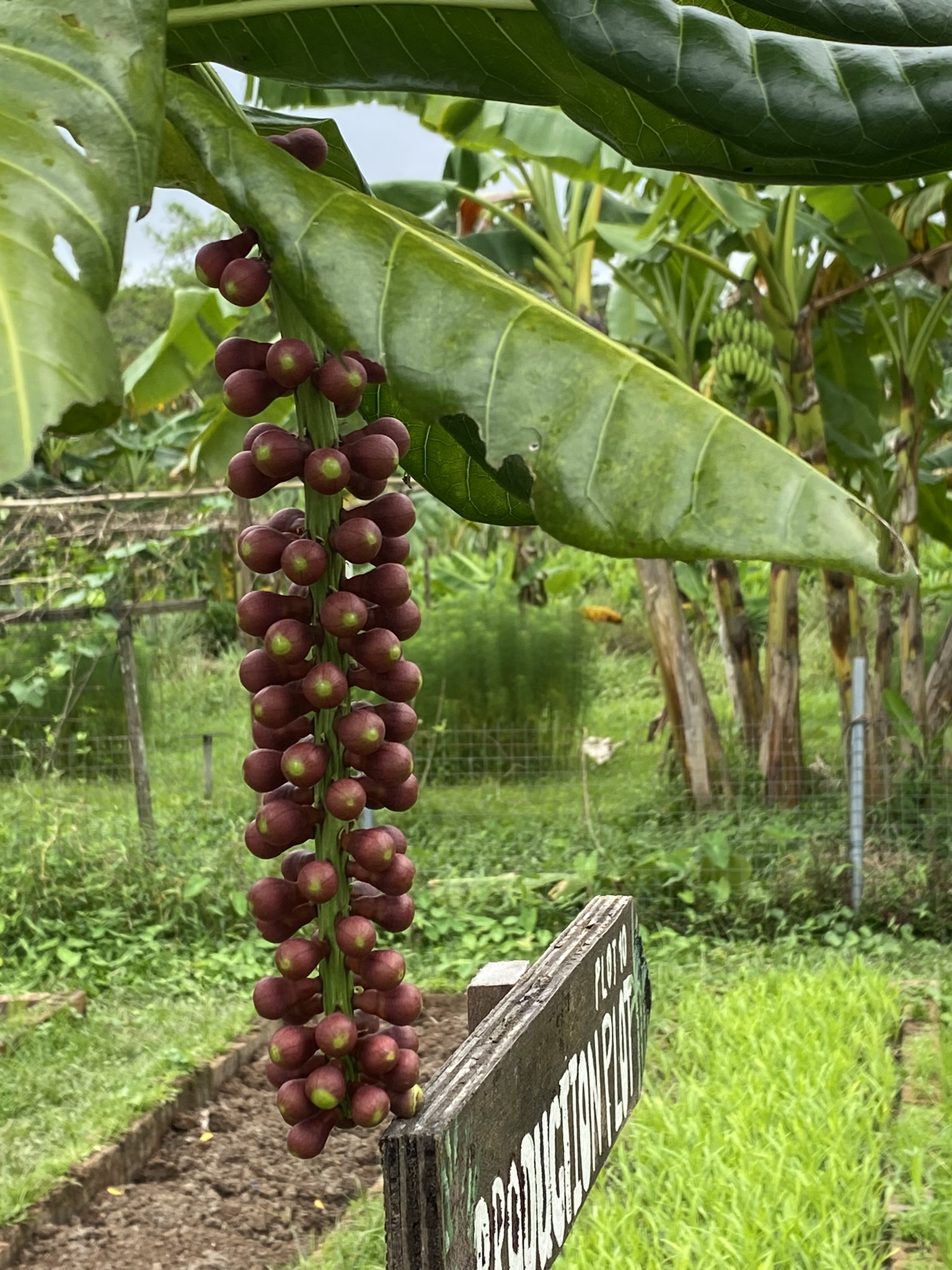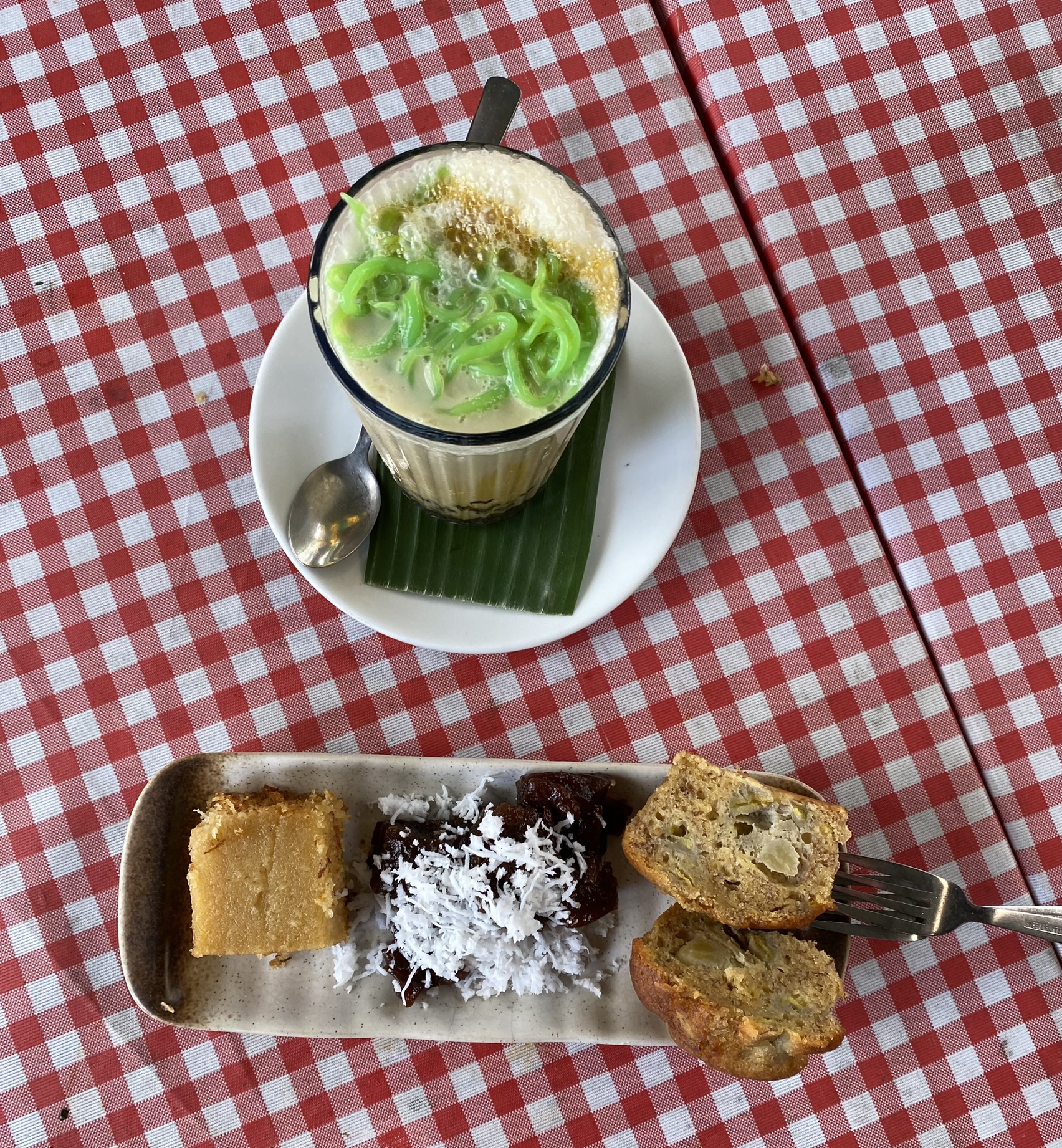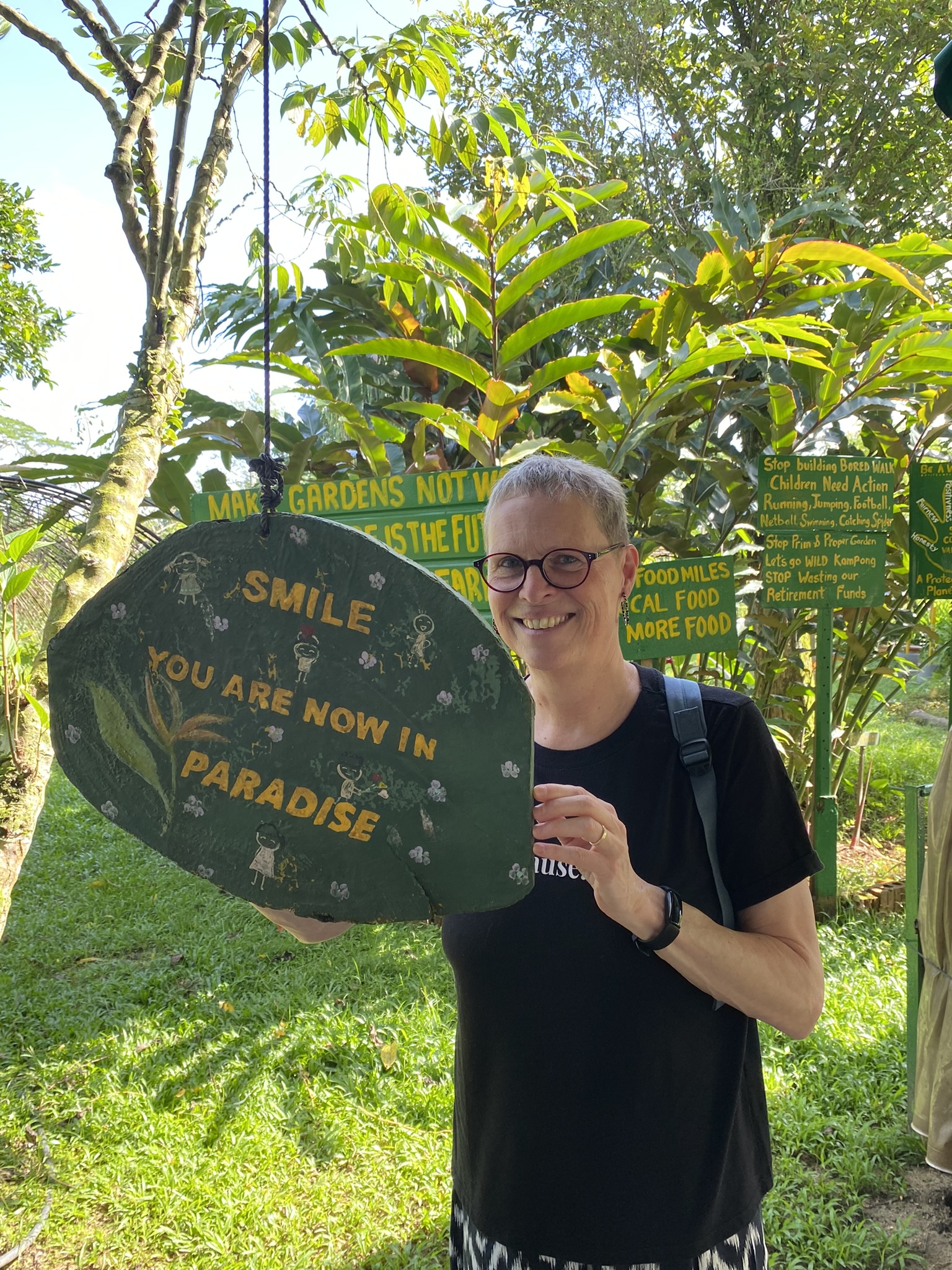Connecting with the land, community, and country: Bollywood Farms Singapore
Mar 14, 2024
Posted by: Monique Parker
When I think of Singapore, I think of tall buildings, beautiful parks, and clean streets, so when somebody mentioned to me that there is an organic farm in Singapore, I raised my eyebrows. This I had to see with my own eyes!
During a recent visit to Singapore, my friend Maureen (who happened to be in Singapore for two days) and I managed to make our way to ‘Bollywood Farms’ and were welcomed by Lynn, the general manager, or ‘General Warrior’, (you’ll understand the warrior bit later), who organised a staff member, Maik, to show us around the farm. We could not have wished for a more knowledgeable and enthusiastic guide! Maik even gave us a demonstration on how to use the lipstick plant to put some colour on your cheeks!
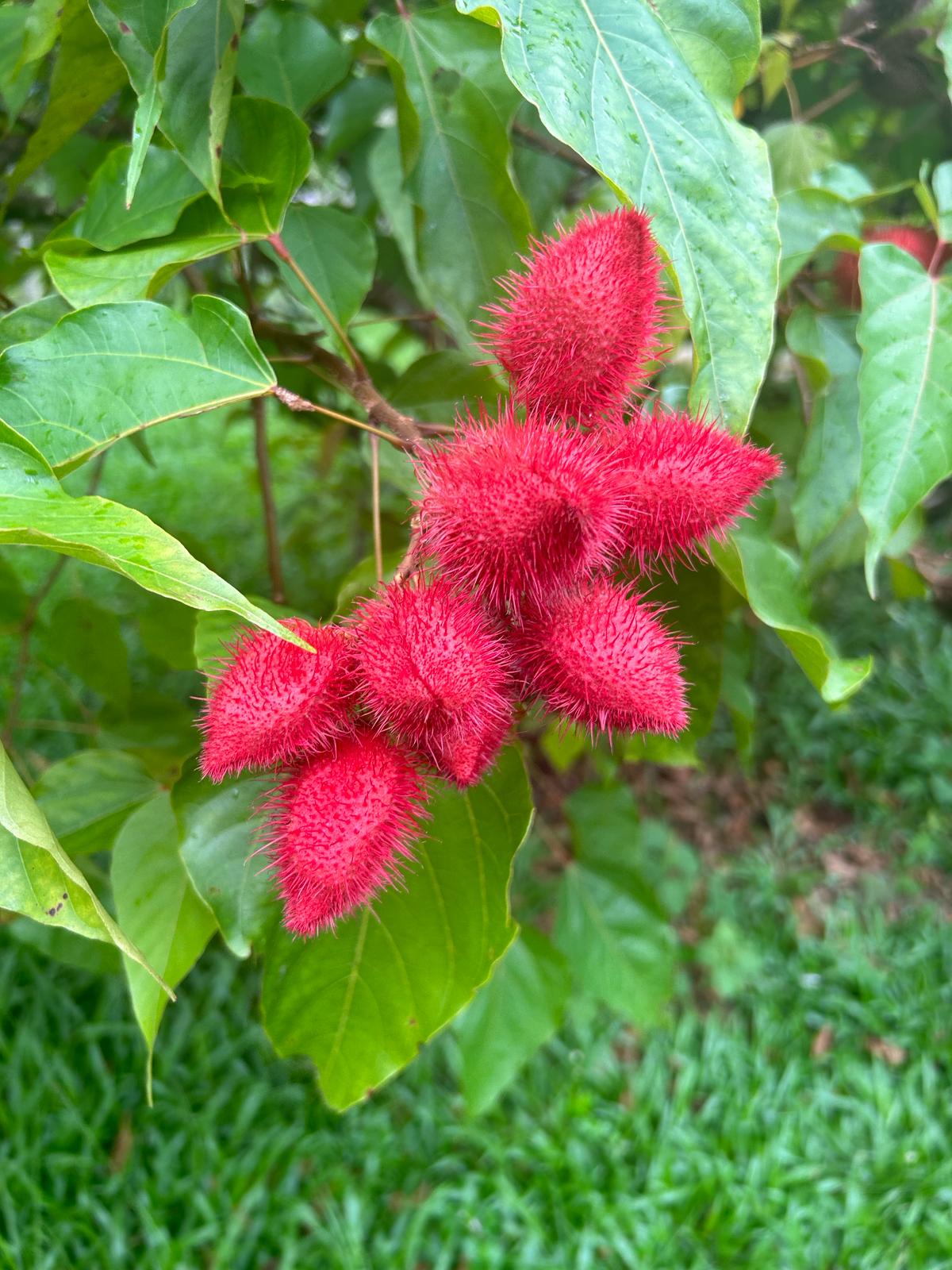
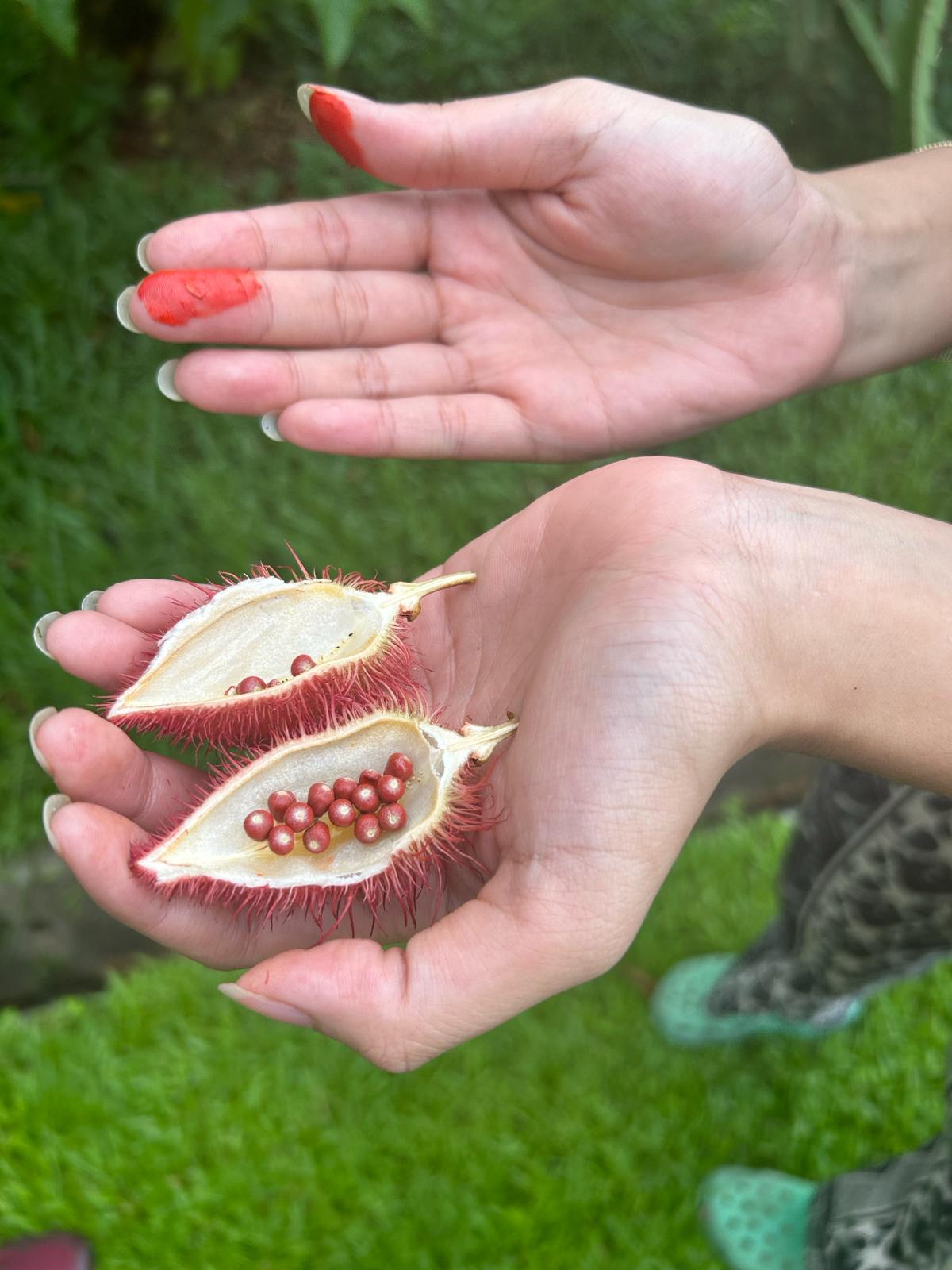
The first thing that strikes when you arrive at the farm, are all the, mainly green and yellow, signs with statements and pearls of wisdom. We were a bit baffled by the sign opposite the entrance, ‘Parking for Warriors’ Horses’, but once we found out more about the founders Ivy and Ho Seng, it all made sense.
How about ‘Reduce Food Miles – Eat Local Food – Grow More Food’ or ‘Make Gardens not War – Back to Nature is the Future – The Garden Farm’, it all makes so much sense and those of you who have read my book ‘Conversations on the Lost Connection with Nature’ will understand that this farm is exactly what I mean with ‘connecting with Nature’.
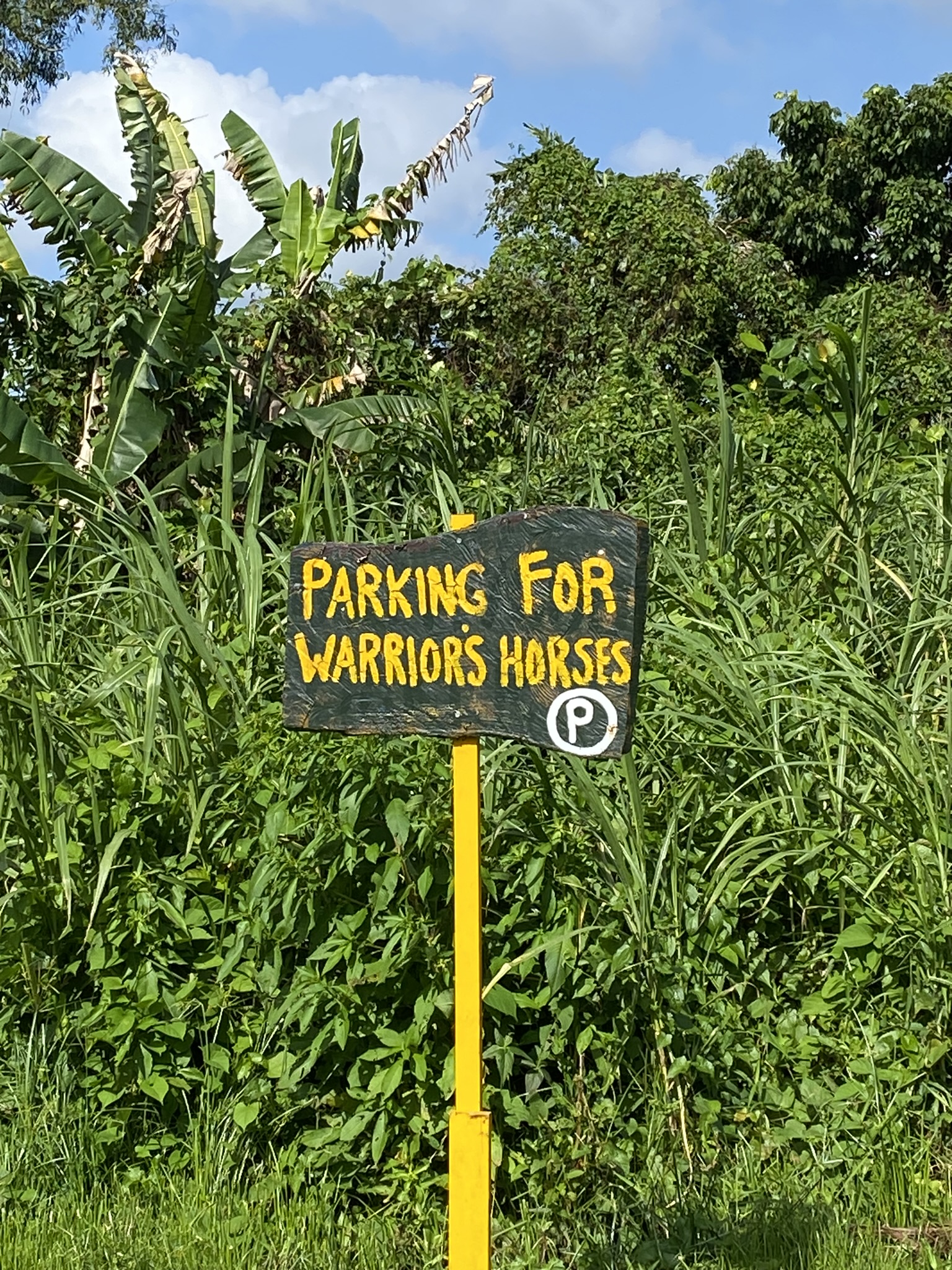
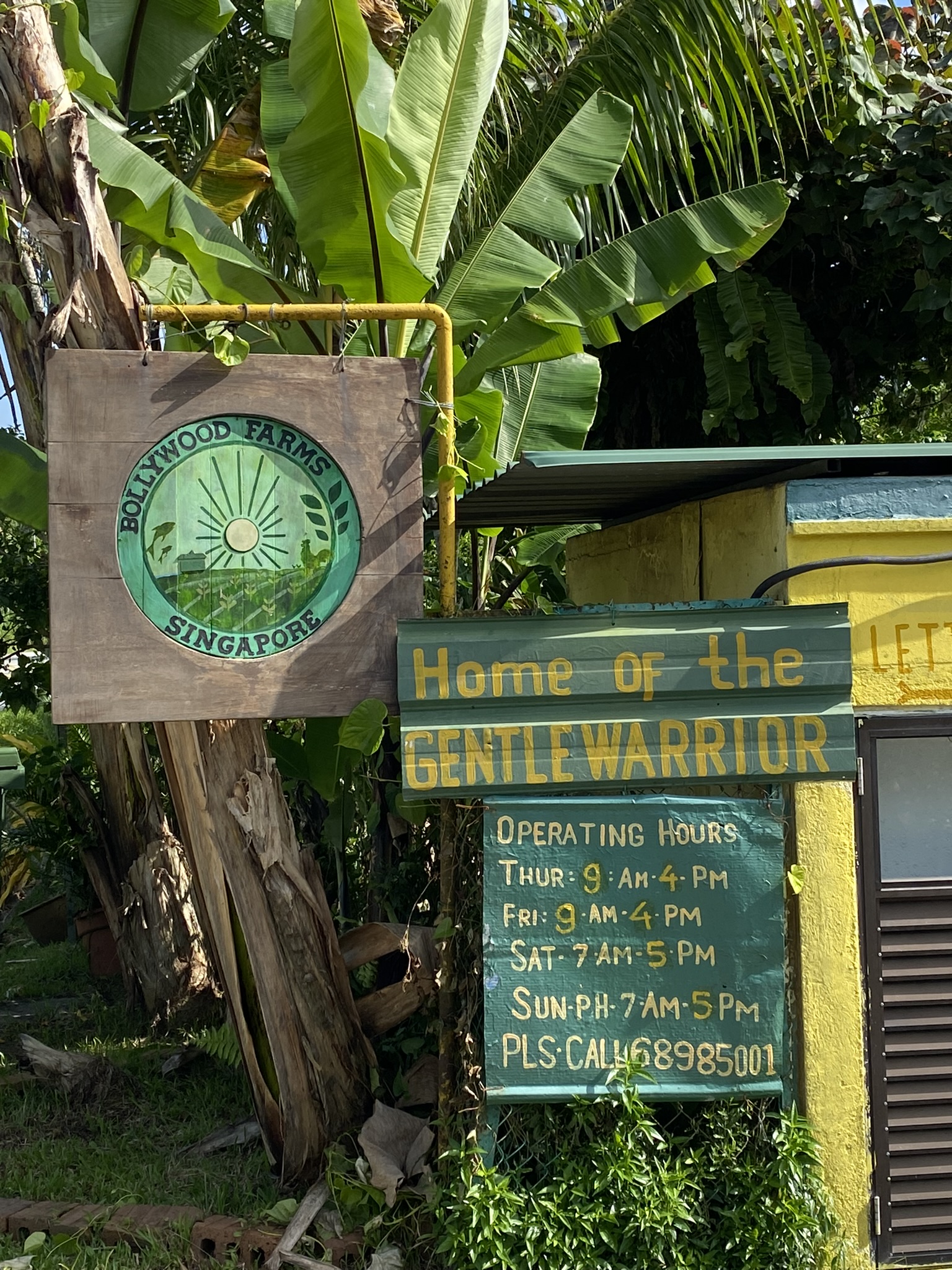
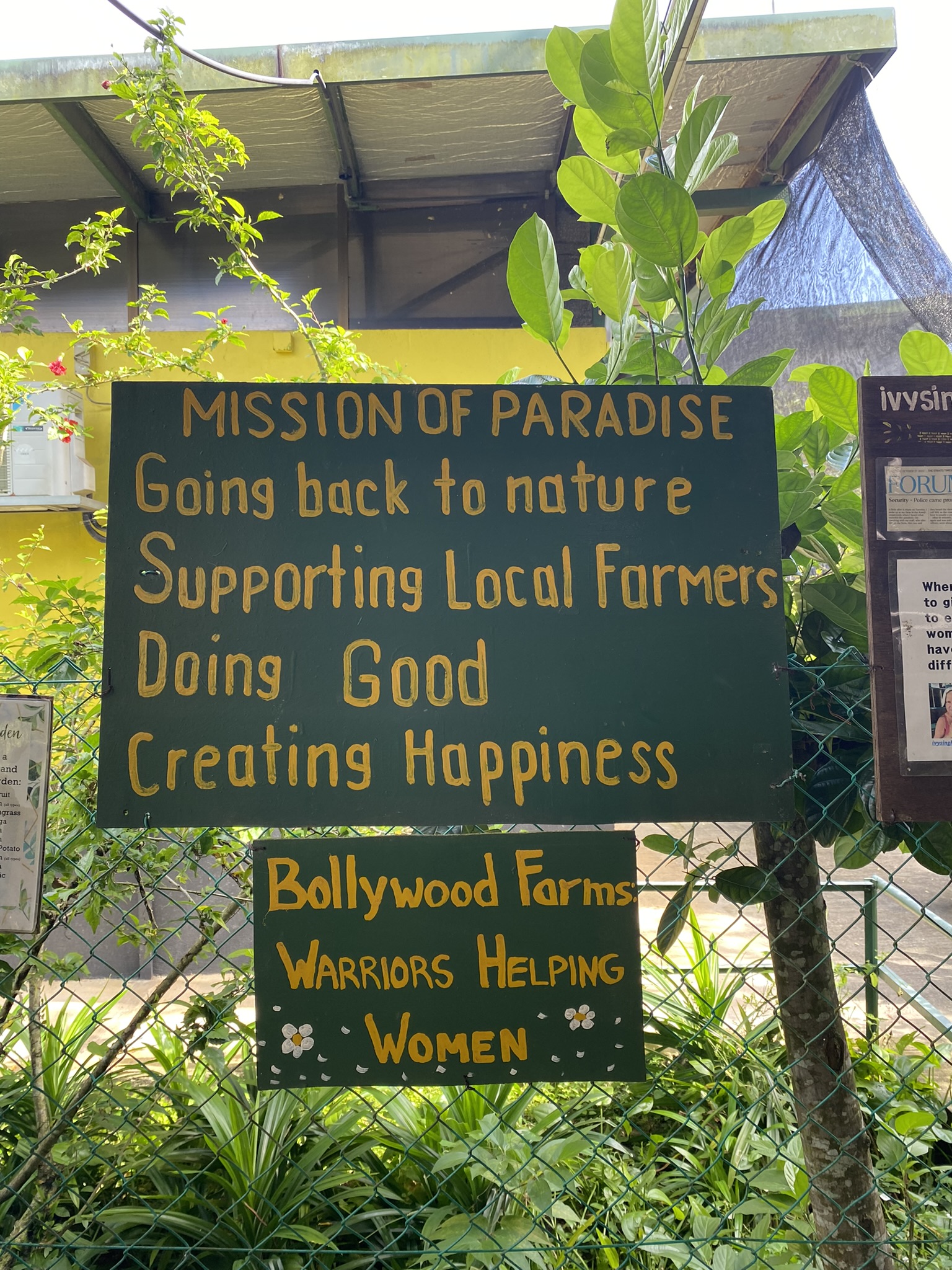
It was wonderful to walk around the farm and see all the fruits, vegetables, and herbs they grow, and the way the whole farm is set up. It is a lush, peaceful, green oasis; one that I never had expected in Singapore. Don’t get me wrong, Singapore is full of lush, green oases, but they are not farms.
Every plant or tree is labelled, so we learned a lot about species we had never seen before. Like the Belimbing or Bilimbi (Averrhoa bilimbi), a small tree with fruits that are crunchy and very sour. This tree is part of the Oxalidaceae family; hence the fruits are very high in oxalates.
Or the Noni tree (Morinda citrifolia) with yellow, knobbly fruits that are also called ‘vomit fruit’ or ‘cheese fruit’ due to its pungent odour. Doesn’t sound very appetising, but this fruit does have a lot of nutrients such as vitamins and antioxidants. It is not for everyone though, as it is very high in potassium and has laxative effects.
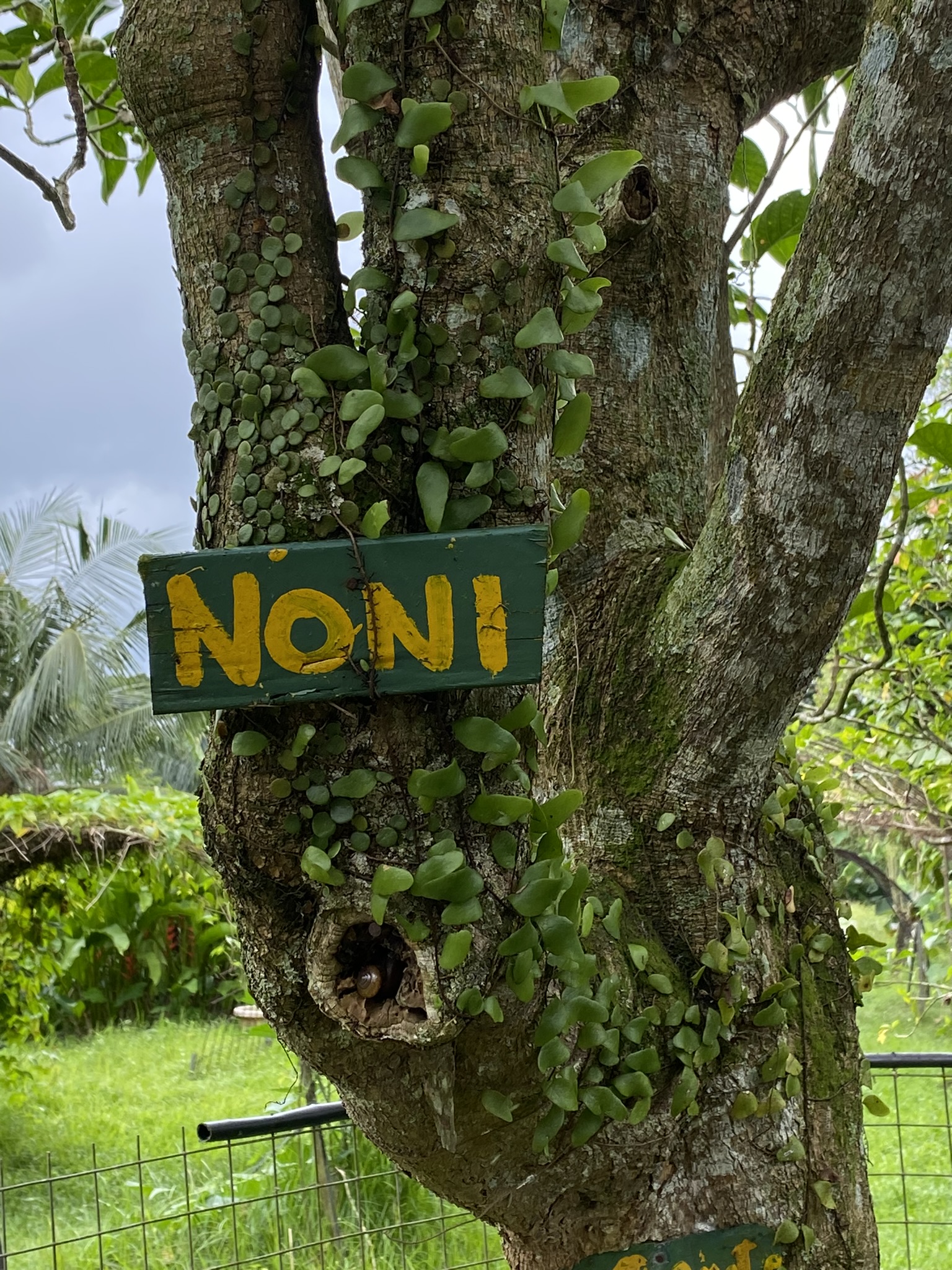
And, just one more example, the Cut Nut tree (Barringtonia edulis) with its beautifully dangling seeds, that are eaten raw or cooked and taste like peanuts.
Banana Street was quite an eye opener too. To me a banana is a banana and although I knew there are different varieties, apparently worldwide there are more than 1,000 species. If I remember correctly, Bollywood Farms grow about 38 different species including some heirloom bananas.
After our tour around the farm, Maik insisted that we would stay for lunch to sample some dishes that are cooked in the ‘Poison Ivy Bistro’. We were offered some wonderful dishes, like nasi lemak and fragrant curry, and not to forget the desserts and drinks (banana cake, kuehs, lemon grass tea, pandan tea for instance). Well, what can I say? It looked amazing, smelled wonderful and tasted even better! And everything was made with ingredients grown on the farm.
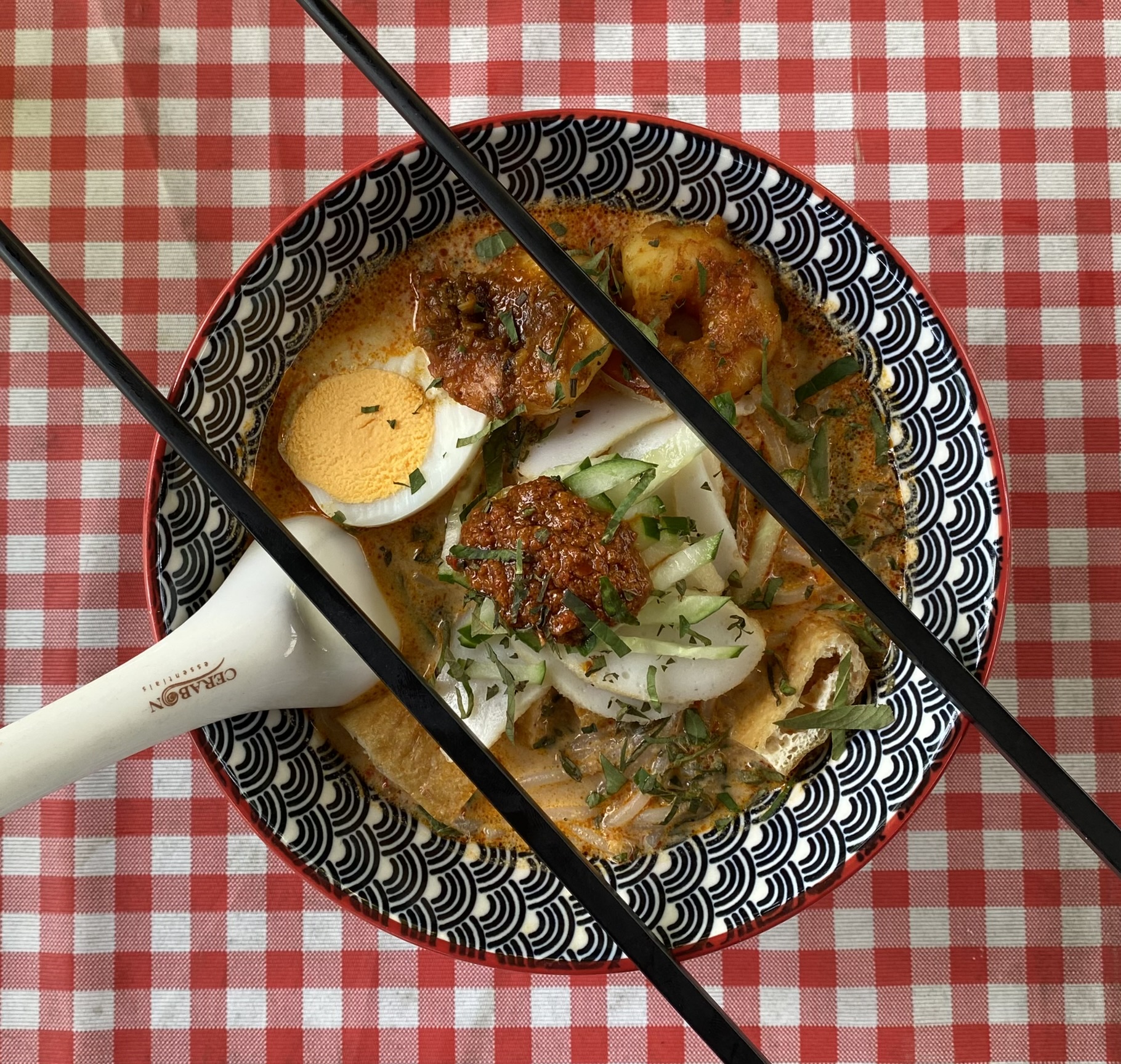
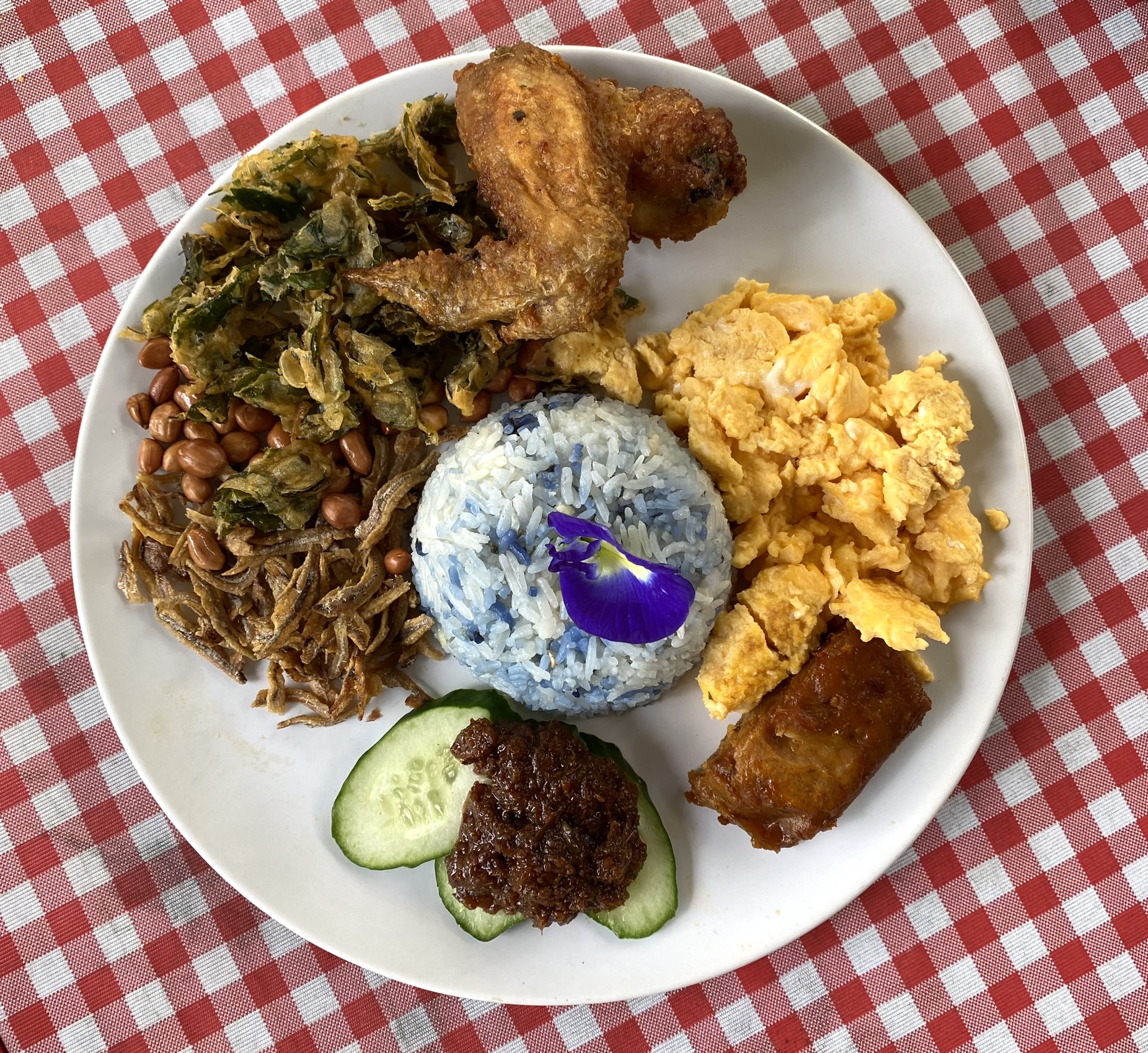
I can truly say that visiting Bollywood Farms was one of the highlights of my visit to Singapore.
Not just because of the tour and the food, but also because of the ethos of the place, the message that it is giving, and the determination of the founders to help develop the Kranji countryside.
So, what is the story of this remarkable place?
It all started in 2000 when founders Ivy Singh (aka the ‘Gentle Warrior’, she is a descendant of an Indian Rajput warrior caste) and Lim Ho Seng were thinking of retirement. Reading a story about farming in Singapore made them reach out to some of the few remaining farmers and eight months later they submitted a tender for 10 acres of land in Kranji, a suburb in northwestern Singapore.
Ivy and Ho Seng won the tender and got a plot of swampy land, full of weeds, with a small road through it. Despite the authorities thinking they were crazy, Ivy and Ho Seng had other ideas and in 2001, after jumping through various logistical and bureaucratic hoops, the land was officially theirs and plans for the development got approved by the authorities. In 2003 they got approval for a restaurant and not even a year later, Poison Ivy Bistro opened, serving food prepared from organic produce that is grown on the farm.
The farm grew from strength to strength; a culinary school was opened and in 2009 the Bollywood Bhanchha (kitchen) and Food Museum opened its doors. In 2018 Bollywoods Adventures was born, the education and events side of the business.
Ivy and Ho Seng are very community-orientated, and they hope that by showing the rural lifestyle, they can help create a more caring society. In 2013 they launched a scheme that gives Singaporean youngsters financial assistance for studying and introduces them to Food & Beverage operations and events management through part-time work experience at the farm. They also create employment opportunities for marginalised groups.
Bollywood Farms is not just a farm, it is so much more.
If you like this content, please follow me on Instagram @moniquejparker for more food and nature inspired stories - thank you
My next blog will be about another organic farm, but this one is in Zanzibar, Tanzania!

